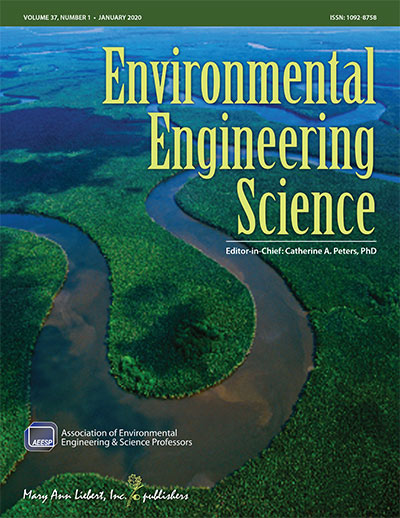Special Issue on Global Environmental Engineering for and with Historically Marginalized Communities
As noted by iDE founder Paul Polak, 90% of engineering and science research is focused on the problems and circumstances of the global wealthiest 10%. However, some of the most vexing and consequential challenges are concentrated in the world’s poorer regions. More than 10% of humanity continue to live off less than $1.90 per day and lack access to basic services and economic opportunity. More than 2 billion people still lack access to basic sanitation services, more than 1 billion are without electricity, and more than 3 billion people rely on household energy sources that produce dangerous indoor air pollutants. Unsafe air and water rank among the major contributors to disease and death worldwide. Sadly, historically marginalized communities disproportionately bear the burden of environmental and health risks but are not typically prioritized by advances in engineering and technology.
This vision for this Special Issue is to report cutting-edge interdisciplinary environmental engineering and science research contextualized by the unique challenges and the resource and economic constraints faced by historically marginalized communities in the United States and around the world. Papers contributed to this Special Issue should address at least one of the Grand Challenges documented in the NASEM Report, Environmental Engineering for the 21st Century:
- Sustainably Supply Food, Water, and Energy
- Curb Climate Change and Adapt to Its Impacts
- Design a Future Without Pollution or Waste
- Create Efficient, Healthy, Resilient Cities
- Foster Informed Decisions and Actions
The cross-cutting theme of this Special Issue is that Grand Challenge(s) must be addressed through research conducted for and with the participation of historically marginalized communities. As outlined in the NASEM Report, research should be conducted by “broad coalitions of scholars and practitioners from different disciplines and backgrounds, and through true partnerships with communities and stakeholders.” Studies should reflect “a keen awareness of the needs of people who have historically been excluded from environmental decision-making, such as those who are socioeconomically disadvantaged, members of underrepresented groups, or those otherwise marginalized.” Furthermore, “transparency and inclusiveness should be prioritized in all aspects of the process, from data collection to decision making, by creating genuine opportunities for public participation, especially within communities that are seemingly disinterested, disadvantaged, or marginalized.”
Additionally, in order to promote broader impacts of this Special Issue beyond academic readers, we strongly encourage authors to provide supplementary materials to accompany their articles. These supplements could take the form of a policy brief, a practical how-to manual, a classroom or lab class educational module, a design tool that can be used by practitioners and implementers, and so on as appropriate for each paper topic. In keeping with the theme of this Special Issue, the aim is to pursue impact among constituencies that traditionally do not read academic papers and interpret the results. This could be accomplished, for example, by translating the papers into supplemental documents or tools that can be understood and used by laypeople.
The deadline for manuscript submission is JULY 15, 2020. Submit articles under the special manuscript category for this issue online here. Visit our website to read about the journal and to view a sample issue.
Editorial questions?
Contact Editor-in-Chief Catherine Peters
Manuscript preparation or technical questions?
Contact the Manuscript Manager Dawn Densmore
